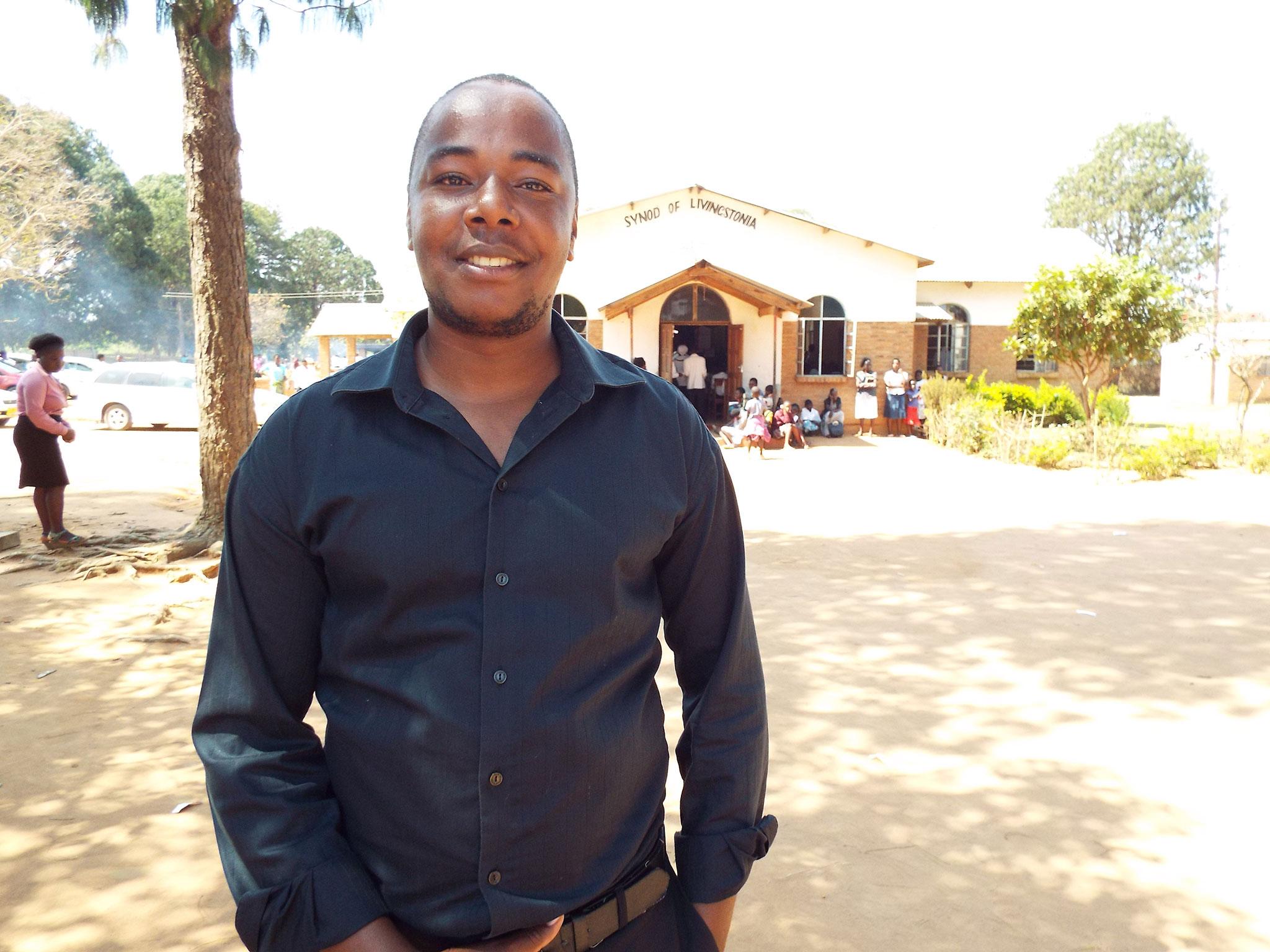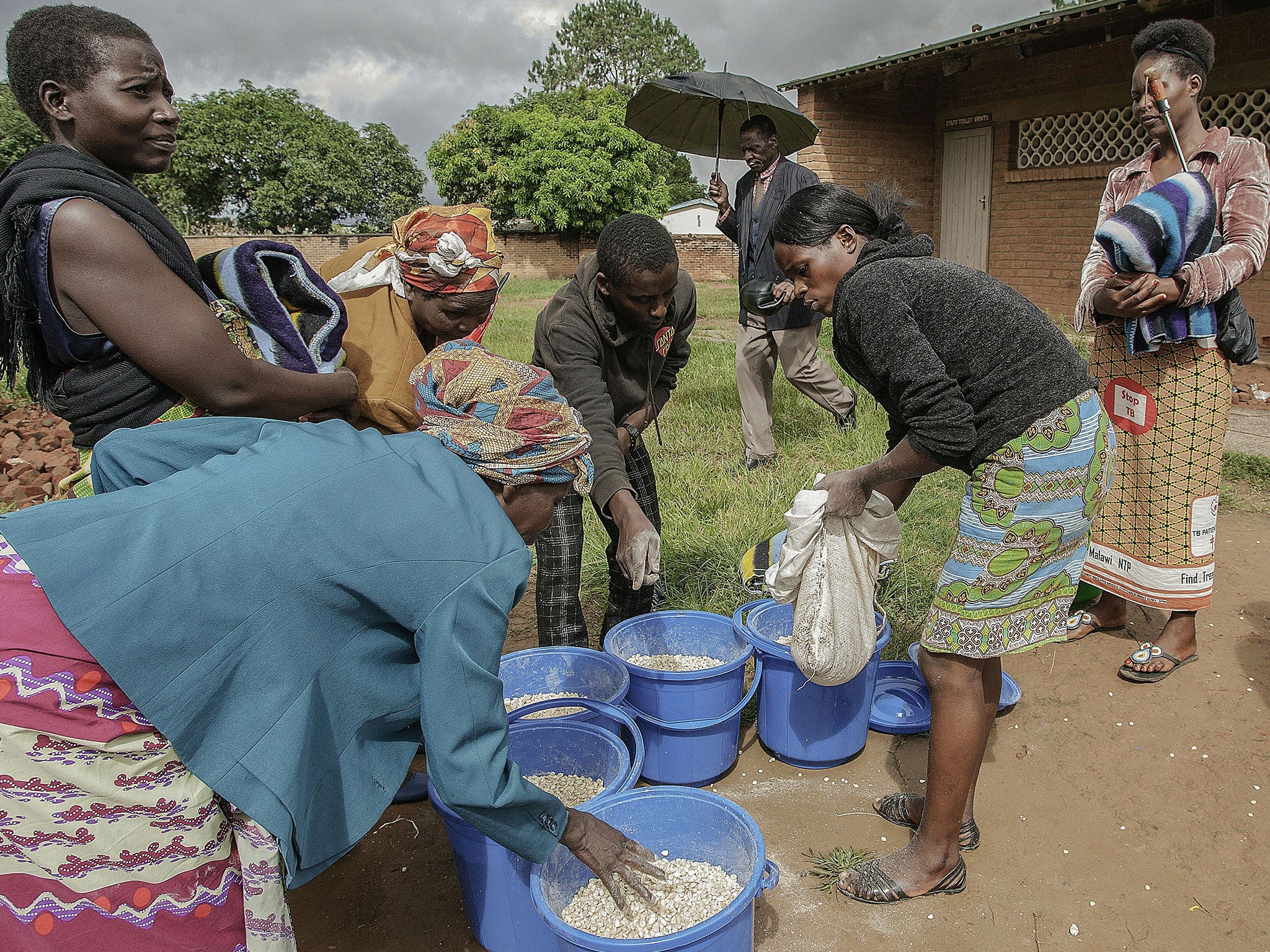The church leader who actually wants Africans to use condoms
‘The church are running away from the truth,’ says Chatonda Mhango. ‘There’s a mentality that if you encourage condoms, you will encourage fornication, but it’s happening anyway’

A Christian youth leader is taking on one of Malawi’s oldest taboos in an attempt to help tackle the country’s HIV pandemic.
Chatonda Mhango, the youth chairman of one of the country’s largest Presbyterian minsters, wants contraception to be discussed as a means of HIV and Aids prevention in churches.
Yet the idea is widely condemned by churches across sub-Saharan Africa because it is seen as synonymous with promiscuity.
Malawi is one of the nine African countries in which more than 10 per cent of the population have HIV. The rate rises to about 17 per cent in urban areas.
The steady decline in new HIV infections worldwide plateaued at around two million a year in 2010, suggesting the United Nations’ aim of reducing the numbers to 500,000 a year by 2020 is overly optimistic.
“It’s about life and death, people are dying,” Mr Mhango, who has lost count of the people he knows who have been killed by Aids, told The Independent.
“The most painful thing is we at the church are running away from the truth when there are lots of nasty things happening outside of it.”
The 28-year-old university graduate is responsible for young members at the Church of Central Africa Presbyterian Synod (CCAP) of Livingstonia in the St Augustine neighbourhood of Mzuzu.
The church, in this dusty and bustling city, northern Malawi’s largest, has a 700-strong congregation that swells to 2,000 in college term time.
Mr Mhango does not believe condoms should be encouraged in church services or distributed but, in a relatively ground-breaking move, wants their use to be discussed at youth meetings for those struggling to abstain.
Malawi’s schools and non-governmental organisations promote the ABC method of avoiding STIs: abstain, be faithful (to one uninfected partner) or “condomise”.
However, in the Malawian church, there is a rather different ABC message: abstain, be faithful or “use Christ”.
“Biblically, I would say no, we cannot talk about condoms in the church, but in special groupings, that would be okay,” said Mr Mhango, who does not drink and does not have sex with his girlfriend because they are not married.
“The church says abstain, abstain, abstain, but people are failing to abstain and then the church is hit hard by the virus.
“Someone, somewhere, is not being faithful, that’s why it’s important to also talk about condoms.
“There’s a mentality that if you encourage condoms, you will encourage fornication, but it’s happening anyway.”
Mr Mhango also blames false prophets, who claim to have healing powers that can pray away an HIV infection, for aggravating the pandemic.
Temitope Balogun Joshua, known as TB Joshua, who is a Nigerian pastor, televangelist and philanthropist, is the most obvious example. He boasts a monumental following on the continent.
“Not everyone who prays for you is from God,” said Mr Mhango, who says he was never given a condom demonstration in school.
Tentative talk of an HIV cure emerged earlier this year after a 44-year-old in the UK appeared to shake off the virus after a course of prototype therapy – but the headlines were widely considered premature.
The post-exposure prophylaxis (PREP) drug, which must be taken no more than 72 hours after exposure, is the only known potential cure, but antiretroviral drugs can control the infection and enable someone to live with the disease.
However, if it is aggravated by cancer or conditions such as tuberculosis and hepatitis C, it can develop to Aids, which can be terminal.
Mr Mhango was recently close to hosting a sexual health workshop.

He was given permission from his church elders to hold a discussion with local charity Tovwirane, which included British volunteers from UK Aid charity Progressio ICS (International Citizen Service), but then ran out of time to organise the event.
Previous attempts stalled because of a reluctance by elders from other surrounding churches to allow youths from their congregations to join.
A friend of Mr Mhango, who gave his name as Cuthbert, said condoms must never be discussed in a church setting.
In a 2005 study, referenced in the Religious teachings and influences on the ABCs of HIV prevention in Malawi report, 27 per cent of religious leaders surveyed across 187 congregations said they had at least once privately advised church members to use condoms.
The country’s health ministry has previously urged churches to take a more central role in fighting HIV and Aids and to stop “information dissemination”.
Join our commenting forum
Join thought-provoking conversations, follow other Independent readers and see their replies
Comments
Bookmark popover
Removed from bookmarks